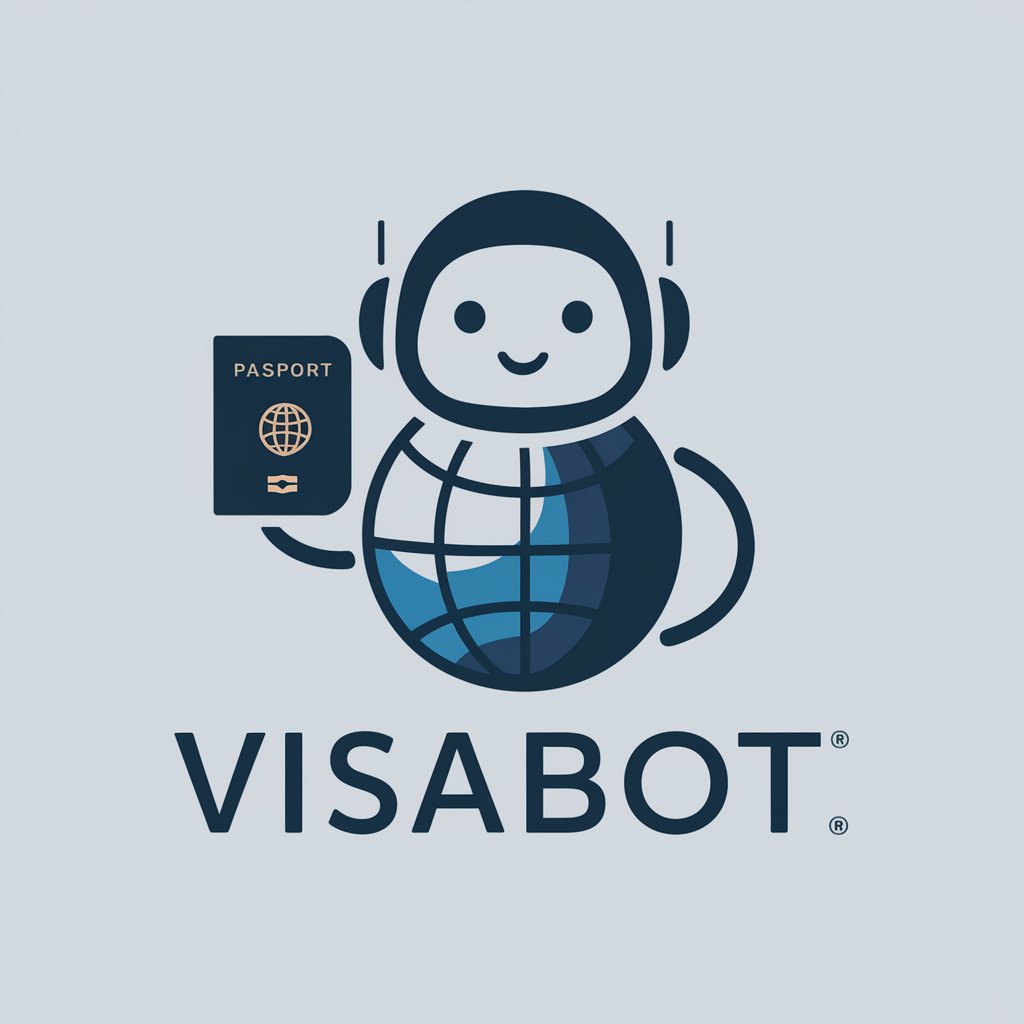5 GPTs for Immigration Consulting Powered by AI for Free of 2026
AI GPTs for Immigration Consulting are advanced artificial intelligence tools designed to assist individuals and professionals with various aspects of immigration. Leveraging the power of Generative Pre-trained Transformers, these tools offer tailored solutions for navigating complex immigration processes, providing advice, and ensuring compliance with regulations. They are specifically adapted to handle tasks and topics within the immigration consulting domain, making sophisticated AI technology accessible for solving real-world immigration challenges.
Top 5 GPTs for Immigration Consulting are: Canadian Immigration Guide,VisaBot,CCI 加中国际移民,Canadian Worker,Maple Advisor
Canadian Immigration Guide
Navigating Canadian Immigration with AI-Powered Precision

VisaBot
Navigate Visa Complexity with AI Ease

CCI 加中国际移民
Empowering Your Canadian Dream with AI

Canadian Worker
AI-Powered Immigration Work Definition Advisor

Maple Advisor
AI-powered Canadian Immigration Guide

Essential Attributes of AI GPTs in Immigration
AI GPTs tools for Immigration Consulting are distinguished by their adaptability, capable of handling tasks ranging from simple Q&A to complex legal advice. Key features include natural language processing for understanding and generating human-like responses, data analysis for interpreting immigration laws, and tailored advice based on individual profiles. Specialized features may include language learning capabilities to help users navigate multilingual documents, technical support for application processes, and integration with web searching and image creation for comprehensive assistance.
Who Benefits from AI GPTs in Immigration Consulting?
AI GPTs tools for Immigration Consulting serve a broad audience, including individuals seeking immigration assistance, legal professionals specializing in immigration law, and consultants providing advisory services. These tools are accessible to users without coding skills, offering intuitive interfaces and guided processes, while also providing advanced customization options for developers and professionals who wish to tailor the AI's capabilities to specific needs.
Try Our other AI GPTs tools for Free
Practical Application
Discover how AI GPTs for Practical Application can transform your approach to tasks with tailored, AI-driven solutions designed for efficiency and creativity across various fields.
Scenario Visualization
Discover AI-powered Scenario Visualization tools designed to generate and visualize complex scenarios, aiding in strategic planning and decision-making. Accessible to all user levels, these tools offer innovative solutions for in-depth analysis and foresight.
Evidence-Based Medicine
Explore the power of AI GPTs in Evidence-Based Medicine, your gateway to the latest medical insights and personalized care strategies, all at your fingertips.
Inventory Optimization
Discover how AI GPTs revolutionize inventory optimization, offering predictive analytics, real-time insights, and custom solutions for efficient supply chain management.
Module Integration
Discover AI GPTs for Module Integration: Tailored AI solutions designed to simplify software module integration, enhancing development efficiency and innovation.
Procurement Efficiency
Discover how AI GPTs revolutionize procurement, enhancing efficiency and decision-making with tailored, AI-driven solutions for dynamic and strategic procurement operations.
Broader Implications of AI GPTs in Immigration
AI GPTs offer a customized solution that enhances the efficiency and accessibility of immigration consulting services. Their ability to integrate with existing systems and workflows, coupled with user-friendly interfaces, democratizes access to immigration assistance, making it easier for individuals and professionals to navigate the complexities of immigration law.
Frequently Asked Questions
What are AI GPTs for Immigration Consulting?
AI GPTs for Immigration Consulting are AI-based tools designed to offer assistance and tailored advice on immigration processes, leveraging the capabilities of Generative Pre-trained Transformers.
How do these AI tools assist in immigration?
They provide personalized advice, legal information, document processing guidance, and language support, simplifying the complex landscape of immigration laws and procedures.
Can non-technical users utilize these AI GPTs effectively?
Yes, these tools are designed with user-friendly interfaces that require no coding skills, making them accessible to a wide range of users.
Are there customization options for professionals?
Yes, developers and immigration professionals can customize the tools to suit specific requirements, enhancing their utility in professional settings.
Do AI GPTs for Immigration support multiple languages?
Many of these tools include language learning and translation capabilities to assist users in navigating multilingual immigration documents and processes.
How do these tools stay updated with changing immigration laws?
AI GPTs are designed to continuously learn and adapt, ensuring they provide advice based on the most current regulations and policies.
Can AI GPTs replace immigration lawyers?
While they provide valuable assistance, they are not a substitute for professional legal advice. However, they can complement the work of immigration professionals by handling routine inquiries and providing preliminary guidance.
How secure are AI GPTs when handling personal information?
These tools employ advanced security measures to protect user data, ensuring privacy and compliance with data protection regulations.